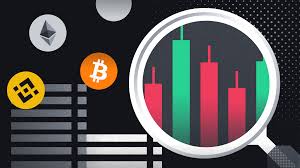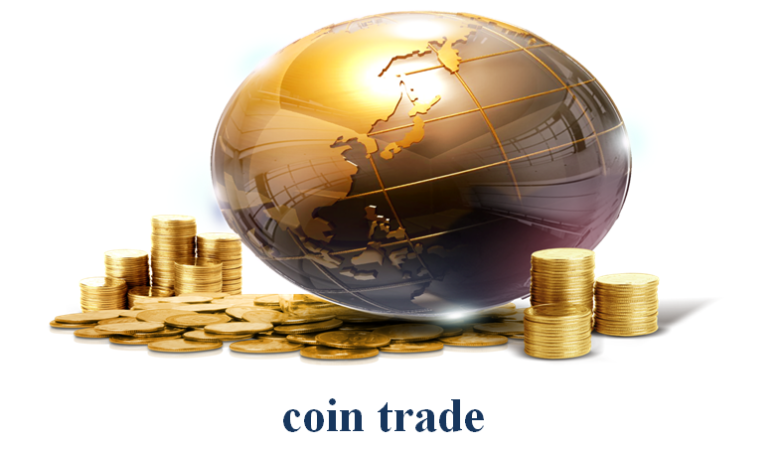Introduction:
Centuries-old coin trading has had a significant impact on the economic and cultural environments of many societies worldwide. The trade of coins has always been a dynamic force reflecting political power, economic success, and cross-cultural exchanges. This is shown in the circulation of ancient coins in the marketplace and the current global numismatic market. This article explores the effects of coin trading on both individuals and society by delving into its historical origins, economic ramifications, and current dynamics.
Historical Roots of Coin Trade:
Coin trading has its roots in the ancient societies that employed metal coins and other types of money as a medium of exchange. Coins developed become vital instruments for promoting trade and commerce in Mesopotamia, classical Greece, and Rome. The ancient trading route known as the Silk Road, which linked the East and the West, was vital in promoting commercial relations and the spread of currency across many cultures.
Coins as Symbols of Power:
Not only have coins been used as means of transaction throughout history, but they have also represented strength and authority in politics. Monarchs and empires utilized currency to project images of power and stability as well as to proclaim their legitimacy. Coins’ images and inscriptions frequently featured the current king, holy figures, or important historical occurrences, telling a visual story of the political and cultural ideals of the government that issued them.
Medieval Trade and Guilds:
Coin commerce developed during the Middle Ages in step with the expansion of trade routes and the establishment of merchant guilds. Cities began to issue their own coins and local currencies arose, reflecting the trade connections and economic activity of the region. By facilitating monetary exchange among its member cities, the Hanseatic League, a medieval trading organization, helped to create a more uniform system of commerce.
Colonial Era and Global Trade:
Coin commerce was further impacted by the era of discovery and colonial expansion, when European nations built colonies and trading routes all over the world. Colonial coins, which frequently included the symbols of the governing empire, were essential to the development of foreign economies. The establishment of global trade networks and the integration of varied economies were significantly influenced by the interchange of coinage between the Old and New Worlds.

Modern Coin Trade and Numismatic Markets:
The coin trade of the contemporary age now encompasses a global numismatic sector, extending beyond local and regional exchanges. Coins are bought, sold, and traded by collectors, investors, and enthusiasts for their inherent worth as well as for their cultural and historical importance. A vibrant and connected international community is fostered by the wide variety of coins available in numismatic markets, ranging from commemorative releases to ancient antiquities.
Economic Implications of Coin Trade:
The coin trade has a wide range of economic effects. Coins may act as a hedge against inflation and a store of value since they are physical assets. Due to their inherent worth, precious metal coins like gold and silver have always been sought for, giving coin markets a component of commodity trade. Furthermore, by increasing demand for other businesses like coin manufacture, grading services, and historical study, coin trading benefits the economy as a whole.
Contemporary Dynamics of Coin Collecting:
There is a wide spectrum of players in the modern coin collecting field, from experienced investors and collectors to casual amateurs. Coins may now be accessed globally through online platforms, auction houses, and numismatic events, allowing anyone to exchange coins regardless of where they live. The numismatic world has been impacted by the emergence of digital currencies and blockchain technology, which have created new channels for ownership and identification.
Challenges and Ethical Considerations:
Coin trading involves difficulties and ethical issues in addition to economic and cultural exchange potential. The numismatic community faces challenges from the illegal trade of stolen or plundered coins, the widespread use of counterfeit coins, and the commercial exploitation of cultural property. A responsible coin exchange takes provenance, ethical sourcing, and observance of laws protecting cultural property into account.
Cultural Exchange and Preservation:
Beyond just the financial benefits, coin trading promotes cultural preservation and interchange. By obtaining and keeping coins, collectors and institutions help to ensure that these physical remnants of the past are preserved and made available to future generations. The numismatic community helps preserve and spread information about coins and their historical settings, which benefits museums, educational initiatives, and archaeological projects.


Conclusion: Navigating the Global Coin Trade Landscape:
In summary, coin exchange has played a crucial role in human history by capturing the political, social, and cultural dynamics of many communities. Global trade and cultural legacy have been profoundly impacted by the interchange of coins, from prehistoric trading routes to contemporary numismatic markets. In order to ensure that coin exchanges continue to contribute to cultural understanding, historical preservation, and the vivid fabric of our shared human experience, it is crucial that we strike a balance between economic and ethical concerns as we negotiate the current coin trading scenario.




